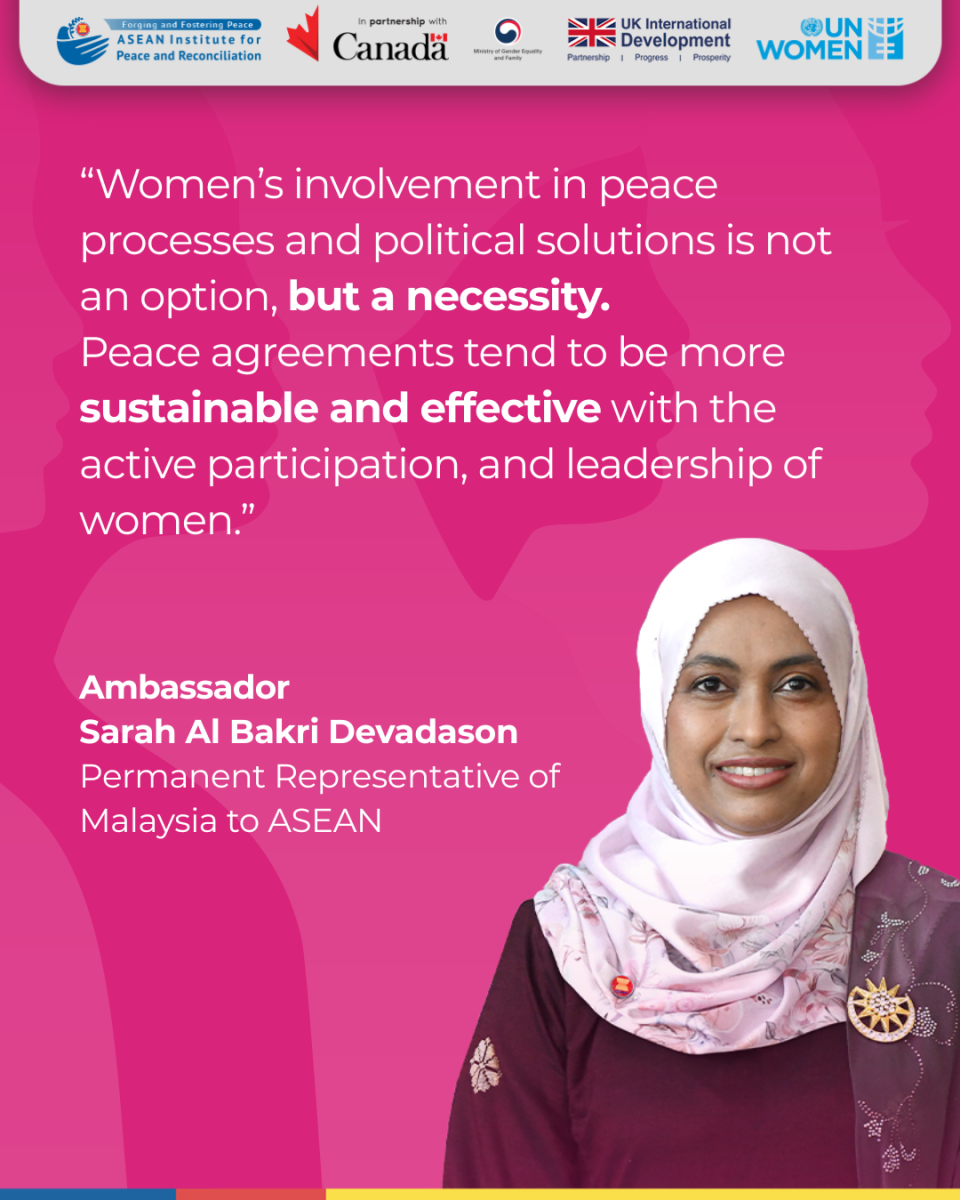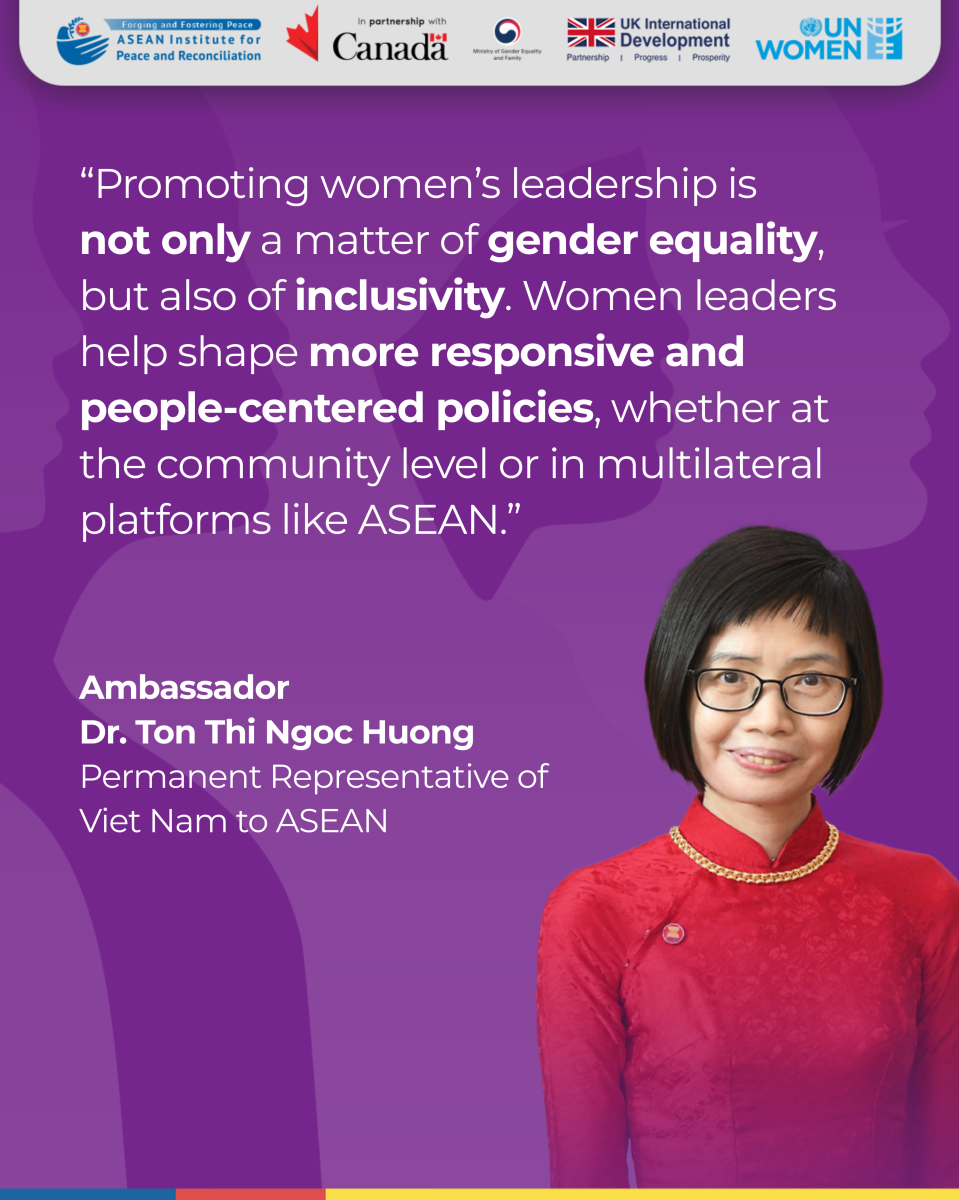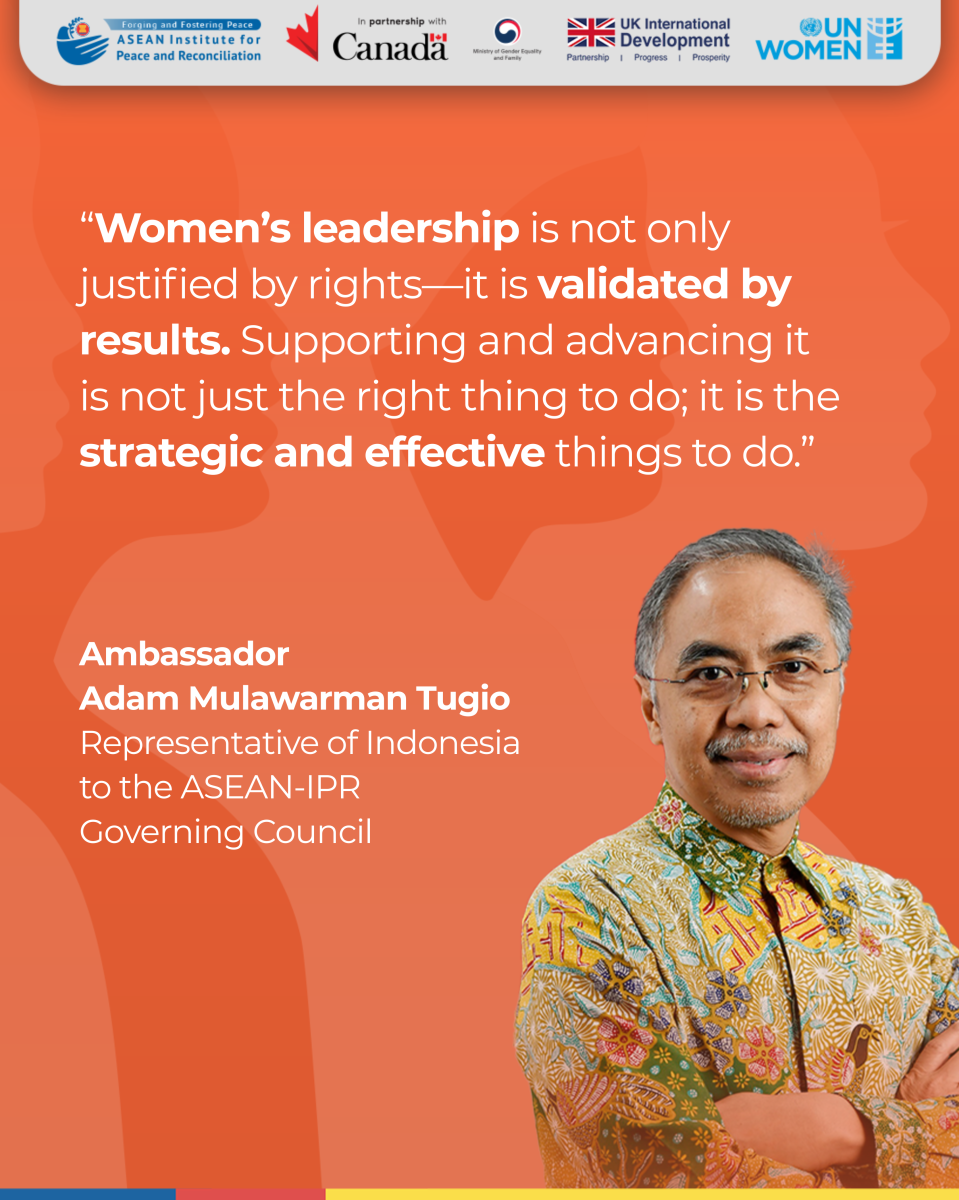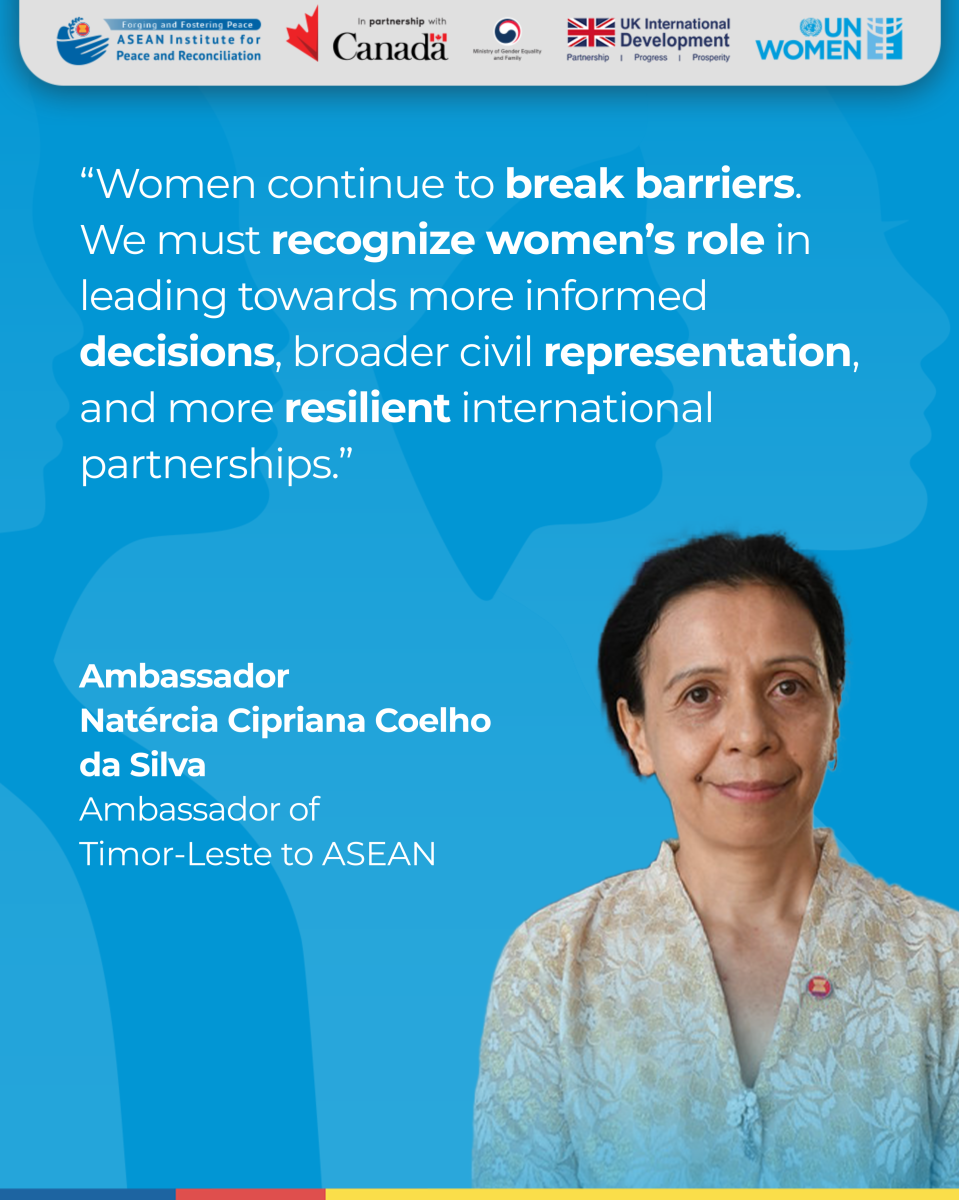What Ambassadors Say: Why Women Matter in Diplomacy
On the International Day of Women in Diplomacy, four Southeast Asian Ambassadors reflect on their leadership journeys—and share why women’s leadership matters in diplomacy and peacebuilding.
Numerous studies have shown that women bring distinct strengths to leadership—emphasising collaboration, empathy, and long-term thinking. That is why having women in leadership positions is essential, especially in politics and diplomacy.
Ambassador Sarah Al Bakri Devadason, Permanent Representative of Malaysia to ASEAN, recognised this strength early on and aspired to become a diplomat at just sixteen years old. She affirms that "women's involvement in peace processes and political solutions is not an option, but a necessity."
“Peace agreements tend to be more sustainable and effective with the active participation, and leadership of women. The participation of women in peacebuilding and peacekeeping offers unique perspectives that promote inclusivity, foster reconciliation, and prioritise essential needs like education, healthcare, and social cohesion,” she emphasised.

Women are also widely recognised for bringing different perspectives and approaches to leadership—often making them more adaptable and flexible when given the opportunity to lead. For Ambassador Dr. Ton Thi Ngoc Huong, Permanent Representative of Viet Nam to ASEAN, women ambassadors carry what she calls “hidden” assets.
“Being a female ambassador is both an honour and a responsibility. Diplomacy is about dialogue, listening, and finding common ground. I believe women bring a unique perspective to negotiations: one that emphasises empathy, patience, and long-term relationship-building. These are not just soft skills; they are ‘hidden’ assets by women when they undertake their diplomatic duties,” she explained.
While women’s leadership brings undeniable value, many challenges still remain. Statistically, the number of female diplomats worldwide remains disproportionately low. Diplomacy, like many sectors, is still historically male-dominated.
Ambassador Natércia Cipriana Coelho da Silva, Ambassador of Timor-Leste to ASEAN, shared her experience, “Women in diplomacy still face significant challenges, including gender-based discrimination, limited access to senior diplomatic roles, and the persistent tendency to assign women to less influential posts and positions.”

Ambassador Huong echoed these concerns. Despite the hurdles, she noted that diplomacy in ASEAN has made notable progress in promoting gender parity and expressed hope that more women will pursue careers in diplomacy.
“Female diplomats still often work in environments where leadership roles have traditionally been dominated by men. At times, there may be implicit biases to overcome, or added pressure to prove one’s capabilities. But I have also found that ASEAN, as a community, has been increasingly supportive of women empowerment. I am heartened to see more female ambassadors and senior officials shaping our regional agenda — from community-building to sustainable development and peace-building,” said Amb. Huong.
To overcome these challenges, a strong support system is crucial. Ambassador Sarah shared that, in addition to gender imbalance, one of the biggest challenges she has faced is balancing career and family. She considers herself fortunate to have a family that supports her career wholeheartedly.
“As a female diplomat, one of the greatest challenges is balancing career and family as this career demands frequent relocations, long working hours and engagements in high-stakes negotiations. Nevertheless, I must say that I have been blessed with a solid support system both at work and home. It has been an absolutely enriching experience to be part of the world of diplomacy,” she reflected.

Beyond family and close circles, the role of colleagues—especially male—as allies is equally important. Ambassador Adam Mulawarman Tugio, Representative of Indonesia to the ASEAN-IPR Governing Council, believes that men have a key role to play in supporting gender equality.
“Women’s leadership is not only justified by rights—it is validated by results. Supporting and advancing it is not just the right thing to do; it is the strategic and effective thing to do,” stated Amb. Adam.
Despite the existing challenges, women ambassadors understand the importance of their roles in influencing international relations and lives of many.
“Women continue to break barriers. Commemorating the International Day of Women in Diplomacy, we must recognize women’s role in leading towards more informed decisions, broader civil representation, and more resilient international partnerships,” as stated by Amb. Natércia Cipriana Coelho da Silva, Ambassador of Timor-Leste to ASEAN.

Ambassador Huong further reflected on the power of representation. “One of the great opportunities that comes with this role is being able to share experience and support the next generation of women in diplomacy. Representation matters. When young women see someone who looks like them at the table — leading, negotiating, and making an impact — it helps to broaden what they believe is possible for themselves.”
Ambassador Adam, as male ally concludes with “Advancing the WPS agenda means not only opening doors but also changing the architecture of the rooms where peace is negotiated. Beyond institutional efforts, being an ally also requires personal commitment—to question entrenched norms, support gender-sensitive policy development, and continuously listen and learn from women peacebuilders.”
*******




